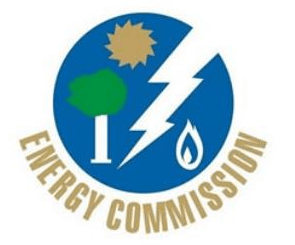Energy Commission to compel public buildings to save energy
 The Energy Commission has initiated a baseline study towards the review of the Building Code for developers of public buildings to utilise standard energy efficiency architecture and materials to conserve energy.
The Energy Commission has initiated a baseline study towards the review of the Building Code for developers of public buildings to utilise standard energy efficiency architecture and materials to conserve energy.
It is, therefore, working with the Ministry of Works and Housing and other relevant bodies to develop a strategic framework for the attainment of the goals for sustainable national progress.
Mr Kofi Agyarko, the Head of Energy Efficiency Promotion and Climate Change of the Commission, who announced this at a forum with media practitioners, said it was imperative for Ghana to progressively adopt energy conservation choices and lifestyles for the efficient and sustainable use of power.
The forum was to announce the successful execution of the Refrigerator Energy Efficiency Project, in which Ghana saved 400 gigawatts hours of electricity, 1.1 million tonnes of Carbon dioxide and recovered 1,500 kilogrammes of Chlorofluorocarbon over the three-year period, with other major benefits.
Mr Agyarko said the current trend of high rise buildings being encased in anything glass, thus necessitating the resort to too many air conditioners with the attendant rise in energy consumption would be tackled in the Commission’s next project.
“Instead of using, for instance, doubled glazed glass, which has air within it and thus can repel heat, developers are using cheaper options, which rather attract heat into their buildings and lead to the demand for expensive cooling appliances,” he said.
He explained that even in advanced countries where power generation was at its peak, energy conservation practices and enforcement were not taken for granted, less Ghana, which could not meet its demand for electricity, which grew by seven per cent annually.
Mr Agyarko said the Commission would extend the standards and regulations to the real estate sector on the successful implementation of the Public Building Project, explaining that tackling problems in phases allowed for easy management and enforcement.
On the achievements of the Refrigerator Project, Mr Agyarko said Ghana now had an assembling plant in the free zones area for manufacturing energy efficient refrigerators as well as a refrigerating testing laboratory at the Ghana Standards Authority, the first of its kind in Sub-Saharan Africa.
Under the Rebate and Exchange Scheme, 10,000 used and inefficient fridges in homes were replaced with new energy efficient ones, with their annual average refrigerator consumption dropping from 1,200 kilowatt hours to 385 kWh.
The project, however, sought to replace 15,000 appliances within the period.
Mr Agyarko said all appliances on the markets, however, had been affixed with a yellow label, giving the model, manufacturers name or trade mark, annual electricity consumption, energy efficiency star rating, type of refrigerant and climate class.
Additionally, 30,000 illegally imported refrigerating appliances were confiscated and dismantled during the period.”
On the challenges of transforming the refrigerating market from used and inefficient ones to new and efficient ones, Mr Agyarko said some importers tried to use sophisticated means, including the guise of diplomatic cargo to perpetuate their trade.
“Some of us were even targeted for extermination, so it has been tough, but I am glad that we have succeeded in making savings both economically and environmentally,” he said.
He urged the public to be vigilant and report any fake labels or suspicious appliances on the market to the Commission to ensure the sustainability of the achievements.
Under the Global Environment Fund, the United Nations Development Programme contributed $2.1 million, while the Government paid $1.0 million for the implementation of the project, which started in 2012.
Source: GNA
